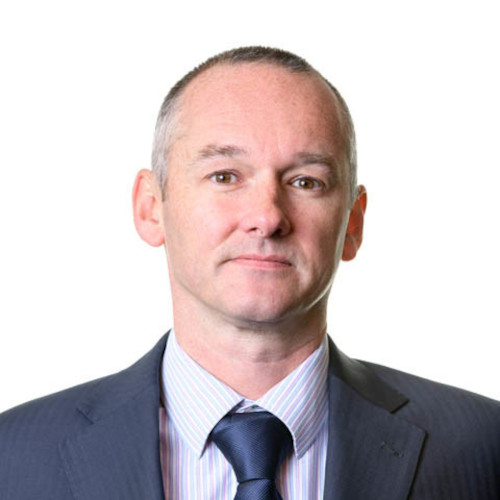Medical evidence under the Director of Public Prosecution’s Guidance on Charging 2020
The Director of Public Prosecution’s Guidance on Charging (31st December 2020) provides a clear structure in which criminal allegations are investigated and prosecuted. Defence teams must have a detailed working knowledge of the Guidance as part of a proactive pre charge engagement strategy.
This page focuses on Medical Evidence.
The significance of the Guidance for defence teams
The Olliers Investigations Team place huge emphasis in monitoring the police and their compliance with the Guidance as part of our pro-active approach to pre-charge work.
We look to engage with police at an early stage of an investigation. We always consider whether we can make representations against charge, by arguing that there is not a ‘realistic prospect of conviction’ or that it is not in the public interest to prosecute. The Guidance was published on the same day (31st December 2020) as the arrangements for ‘pre charge engagement’ (Annex B Attorney General’s Guidelines on Disclosure 2020).
Director of Public Prosecutions Max Hill QC;
‘There has been a major shift in working practices and priorities throughout the criminal justice system in recent years and it is vital there is clear guidance to help police and prosecutors navigate these effectively.
‘The Attorney General’s guidelines focus on getting disclosure right and getting it done early so its impact on the evidence is known. These are significant changes and we must continue to work collaboratively to embed them.’
At Olliers we regard the Guidelines as a powerful resource during the pre charge engagement process.
The pre-charge relevance of Medical evidence in a criminal case
At Olliers our pre charge team appreciate the potentially huge significance of medical evidence during the investigation stage of a case.
Key Principles
Medical evidence can be crucial in establishing key elements of an offence, the extent of injuries and provide corroboration of an allegation. Essentially it is the evidence of a medically qualified person, able to provide admissible information outside the knowledge the court. It may be provided in the form of statements, reports, or medical notes.
The DPP’s guidance is not definitive. Decisions should be based on the merits of each case and the guidance for specific offences.
Investigators and prosecutors should ensure that medical is requested at an early stage. Regard must be had to specific guidance and protocols.
Specific Offences
Battery/common assault
Medical evidence is not normally required, the evidence of a reliable eyewitness should suffice or clear definition photographs. The provenance of a visual record should be clear.
Actual Bodily Harm
Medical evidence is required where the injury is established through interpretation of medical records/X-rays (for example a fracture) and the injury is not accepted by a suspect. Witness observation and visual record will suffice in other circumstances.
Grievous Bodily Harm, Wounding or attempt murder
Medical evidence will be required to establish the extent of the injuries to justify the charges. The interpretation of medical records, X-rays, or other forms of imaging will be necessary. This should be achieved through a medical report or relevant medical notes.
On rare occasions the offence may be prosecuted without medical evidence. Careful consideration should be given in cases where a complainant does not support a prosecution and release of medical records, but the evidential and public interest tests are met.
Timing
Medical evidence should be obtained and local protocols and timeframes adhered to.
A charging decision may nevertheless be possible without medical evidence, depending on the facts of the case, the offence, and whether the decision is made on the Full Code Test or the Threshold Test.
For Full Code cases, key evidence will be available at the point of charge, including medical evidence if required to prove an element of the offence, or rebut an issue raised by the defence.
In Threshold cases, it may not have been possible to obtain a medical report or medical notes. A prosecutor may have to rely upon the police for a description of injuries, current status and latest prognosis. Significantly, information provided by the police must have come from a medical practitioner.
A timescale for a full medical report should accompany the joint action plan in support of the Threshold Test decision.
In anticipated not guilty plea magistrates’ court cases and in all Crown court cases the prosecution must provide details of any medical evidence that is likely to be provided in relation to a complainant or a defendant. This should be done before the first hearing in the magistrates’ court.
Victim consent
The guidance refers to the ‘victim’ although, defence practitioners prefer the term ‘complainant’. Complainants should understand why medical evidence is required. They may decline consent and should not be put under undue pressure. Alternatively they may give informed consent which would allow service of the material or qualified consent which would mean material should not be provided to the defence.
Unused material
Where medical treatment has been sought, this must be recorded and revealed to the prosecutor unless a statement from a medical practitioner is already part of the prosecution case.
The Guidance recognises ‘the overarching principles’ set out in Sir Brian Leveson’s review of ‘Efficiency in Criminal Proceedings’, the most important of which is perhaps the concept of ‘getting it right first time’
Police officers and prosecutors must comply with this Guidance to ensure that charging decisions are fair and consistent, and comply with the Police and Criminal Evidence Act, the PACE Codes of Practice, and the Code for Crown Prosecutors (“the Code”). As the police get to grips with the Guidance it is inevitable that mistakes will be made. Failure to follow the Guidance may risk cases failing or decisions being subject to legal challenge.
The guidance is issued by the DPP for police use, but the provisions apply equally to other investigators where cases are prosecuted by the CPS
At Olliers we recognise the importance of defence teams being at least as familiar with the obligations upon the police as are their police counterparts.
Contact our pre-charge investigations lawyers
If you would like to explore how Olliers can assist you please contact Ruth Peters or Matthew Claughton for a confidential discussion.
Complete the form below and we will contact you
Investigations Menu
Related articles
- Revised Attorney General’s Guidelines On Disclosure 2024
- Disclosure of material from family proceedings in a criminal investigation
- Former Senior Crown Prosecutor Anne-Marie Nicholls, offers her perspective on pre-charge engagement during the investigation stage of a criminal case
- Criminal investigations – defence strategies for bringing a weak case to an early conclusion
- Representations against charge and pre-charge engagement with investigators
- Pre-charge engagement between the police and the defence
- Sexual Offences – Proactive Defence when under Investigation
- Does the Director of Public Prosecution’s Guidance on Charging 2020 mean that weak cases continue to be investigated for much longer than is necessary?
Case Studies
Case Study One
21-year-old male of good character faced allegation of date rape in which the complainant claimed to have been unconscious for ten hours. Olliers were able to prove social media activity throughout the night and downloading of an app together with text activity from the alleged victim the following day. Olliers also provided police with details of a flatmate who witnessed sexual activity. Police were also provided with a motive for the fabricated complaint. Following representations to the police, matter came to a swift conclusion without even going to the Crown Prosecution Service for a charging decision.
Case Study Two
Young man faced allegation of sexual assault in a nightclub. It was suggested that he had assaulted a complete stranger without any earlier interaction. Olliers were able to show that alleged victim had in fact connected with the suspect on WhatsApp at the time of the incident which would have been impossible on her version of events. Olliers were also able to show that complainant’s boyfriend had unexpectedly arrived in the nightclub which gave an explanation and motive for the false allegation. No charges were brought.
Case Study Three
Client faced an allegation of historic rape based upon one incident thirty years earlier. Olliers were able to produce to the police a poem sent to the defendant by the complainant ten years previously i.e. twenty years after the alleged incident in which she admitted to her infatuation with the suspect at the time of the incident. Representations were made including a defence explanation for the allegations being made. Crown Prosecution Service took the view that there was not a realistic prospect of conviction and no charges were brought.
Case Study Four
Client was arrested and interviewed under caution in connection with historic allegations of rape. He was subsequently released under investigation pending further police enquiries. On contacting Olliers, we immediately adopted a proactive approach and established contact with both the officer in the case and the duty solicitor who had represented the client at the police station. Following detailed consideration of the police station notes, and on taking thorough instructions from our client, we drafted representations against charge on his behalf. The aim of our representations was to persuade the Crown Prosecution Service that there was ‘not a realistic prospect of conviction’ as required by the Code for Crown Prosecutors. The police investigation was ongoing for some time and we periodically liaised with the investigating officer to provide the client with updates. Having considered our representations, the police decided to take no further action against our client and the matter came to a close.
Case Study Five
Our client was arrested and interviewed under caution in relation to historic allegations of rape, sexual assault and controlling or coercive behaviour. He was subsequently released under investigation pending further police enquiries. The client contacted Olliers shortly after his arrest. Following this, we obtained the case papers from the duty solicitor who had represented him during interview. We also established contact with the investigating officer and drew their attention to some initial points about the case which would require further investigation. As the investigation developed, we drafted comprehensive representations against charge based on our client’s detailed instructions and relevant material he had provided. On considering our representations, the police decided to take no further action against our client and the matter was concluded.
Case Study Six
Our clients were directors of a payment processing company. This was a multi-jurisdictional investigation involving restraint of assets on several continents. Extensive police liaison took place, a substantial amount of exculpatory material was provided to the police. Complex and ultimately successful applications to vary and discharge restraint orders were made. Representations against charge were submitted. The matter concluded following a successful application under the Criminal Justice and Police Act 2001 for return of items unlawfully seized by police and decision was made to take no further action against our clients.
Case Study Seven
Client E was arrested and interviewed under caution concerning allegations of rape and sexual assault. He was released under investigation as the police continued with their enquiries. Client E contacted Olliers only a few days following his arrest to request pre-charge representation. We swiftly proceeded to make contact with the investigating officer to establish a line of communication. We also quickly obtained the case papers from the duty solicitor whom represented Client E at the police station. For the following five months, we maintained contact with the investigating officer and regularly liaised with them regarding bail requirements and the progress of their investigation. After in-depth consideration of the police station notes and all of the information and instructions provided by the client, we disclosed some material to the investigating officer concerning the allegations. Following review by the police and consideration of their lines of enquiry, a decision to take no further action was reached thereby concluding the investigation.




